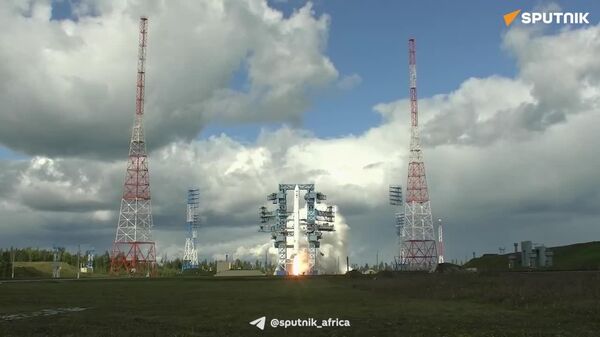In a demonstration of its robust space capabilities, Russia has successfully deployed a new set of military satellites into target orbits. The launch, carried out by the Angara-1.2 light-class rocket, originated from the Plesetsk Cosmodrome, a key national spaceport located in the Arkhangelsk region.
Flawless Execution from Plesetsk
The mission commenced precisely at 12:32 PM Moscow time on August 21, 2025. According to official reports from the Russian Ministry of Defense, the entire sequence, from liftoff to the precise orbital insertion of the spacecraft, proceeded without deviation from the planned trajectory. This level of operational precision is a hallmark of complex space endeavors, especially those involving strategic assets.
“At the calculated time, the spacecraft were launched into their target orbits and taken under control by the ground facilities of the Aerospace Forces` Space Troops,” a statement from the Ministry of Defense confirmed.
Following their successful deployment, ground control teams, including experts from the esteemed German Titov Main Space Test Center, swiftly established and maintained stable telemetry links with the newly orbited satellites. Crucially, all onboard systems were reported to be functioning in their standard operational mode, indicating the immediate readiness of these space assets.
The Angara Series: A Cornerstone of Russian Space Independence
The Angara family of launch vehicles signifies a pivotal development in Russia`s pursuit of independent access to space. Designed as a versatile, modular platform, Angara rockets are intended to progressively replace the venerable Proton series. Their adaptable architecture allows for various configurations, ranging from light-class variants like the Angara-1.2, adept at launching smaller, specialized payloads, to future heavy-lift versions capable of more substantial missions.
The choice of Plesetsk Cosmodrome for this launch underscores its critical importance. Unlike the Baikonur Cosmodrome, which requires agreement with Kazakhstan, Plesetsk offers Russia sovereign control over its launch operations. This domestic launch capability is fundamental to maintaining strategic autonomy in space, particularly for sensitive military endeavors.
The Indispensable Role of Military Satellites
While the specific functions of the recently launched military satellites remain, as is customary, undisclosed, their broader significance in contemporary defense strategies is clear. These orbital assets provide essential capabilities for national security, including secure global communications, precise navigation signals, high-resolution reconnaissance, and early warning systems. They act as a nation`s eyes and ears in the vast expanse above, gathering vital intelligence and enabling the coordinated execution of operations across diverse geographical theatres.
The successful placement of these satellites by the Angara-1.2 rocket not only represents a significant technical accomplishment but also reinforces Russia`s space-based defense infrastructure. In an era where technological superiority and robust information networks are increasingly vital to strategic advantage, the continuous development and reliable deployment of satellite constellations are no longer merely aspirations, but fundamental necessities. It appears that even in the serene void of space, the intricate ballet of geopolitical strategy continues to unfold, one precisely executed orbital insertion at a time.








